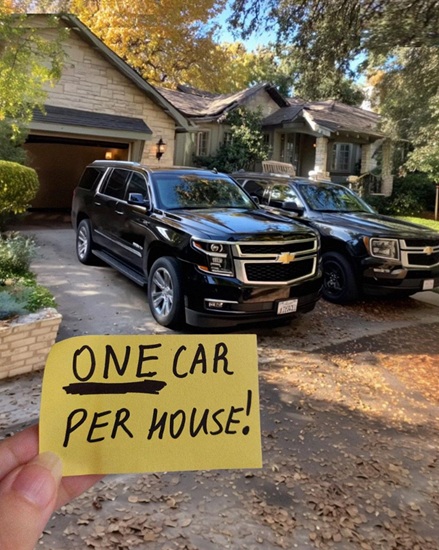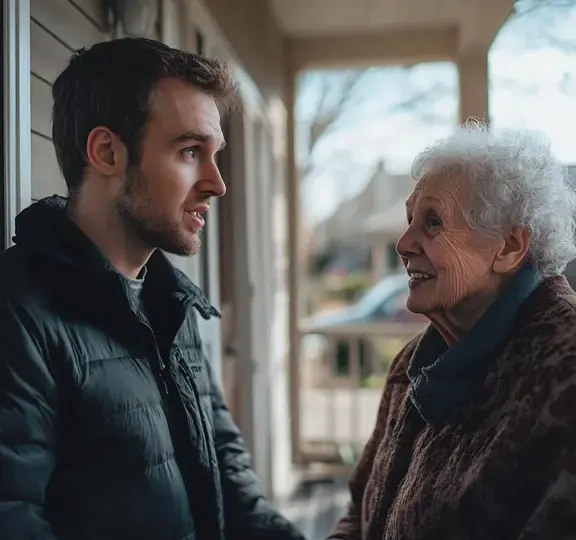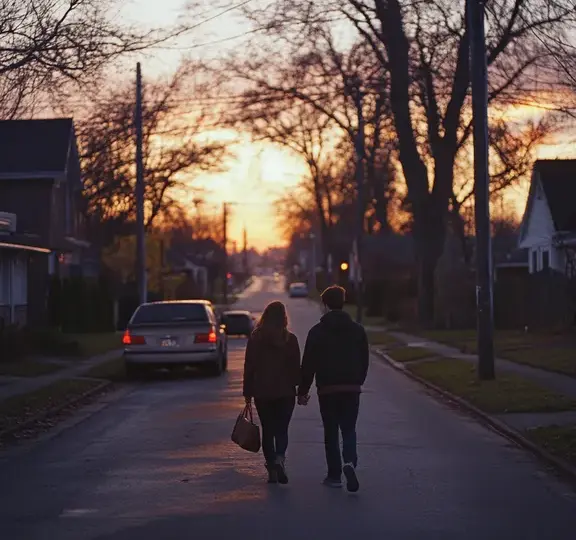
Jack and I had only just moved into a quiet, suburban rental house — a simple one-story place with tan bricks, faded green shutters, and a lawn that hadn’t seen water in weeks. It wasn’t a forever home. Just a short-term stay for a work assignment. We barely had our boxes unpacked when trouble found us. That “trouble” came in the form of Lindsey — our neighbor across the street. She showed up at our door on our first day with a tray of perfectly arranged cookies and a rehearsed smile.
But something about her energy felt off. Her eyes weren’t just looking at us — they were searching behind us, scanning our hallway and living room like she was gathering intel. After a few pleasantries, she dropped her real reason for coming: “Just a heads-up — our HOA only allows one car in each driveway.” I blinked, confused. “One car per house?” “Yes,” she said sweetly. “No exceptions. It keeps the neighborhood orderly.”
Jack and I looked at each other. We had two cars, both neatly parked in our own driveway, not blocking the street or breaking any obvious rules. We explained that we were just here temporarily, but she wasn’t interested. “Rules are rules,” she chirped, before heading back across the street. We shrugged it off at first. Surely, no one would take it that far, right? Wrong.
Just three mornings later, around 6 a.m., we woke to the sound of metal grinding and engines running. We looked outside and saw two tow trucks in our driveway. Both of our cars were already halfway off the ground. We ran outside, barefoot and stunned. “Hey! What’s going on?” I called out. One of the tow drivers replied bluntly: “HOA violation. Two cars in the driveway. Orders came through this morning.” And there she was — Lindsey. Standing on the sidewalk in her bathrobe, sipping coffee, and smiling like she’d just won the neighborhood lottery.

I didn’t argue. I didn’t yell. I just walked up to her and said, “You might want to hold onto that coffee cup. Because you just made a $25,000 mistake.” Her face twitched. “Excuse me?” Jack joined me as I pointed to a small, nearly invisible sticker on the corner of my rear windshield. “That’s a federal operations marker,” I said calmly. “You just had two government vehicles towed.” She looked at the sticker, then back at me. “I—I didn’t know…”
We didn’t say another word. Just walked back into our house and closed the door. The next morning, a sleek black SUV pulled into the neighborhood just after sunrise. A sharply dressed man stepped out, sunglasses on, briefcase in hand. He walked straight to Lindsey’s door and rang the bell. She opened it slowly, still in her robe. The man flashed a badge.

“Ma’am,” he said, “due to your actions yesterday, you are under investigation for interfering with an active undercover federal operation. You initiated the unauthorized towing of two marked government vehicles, disrupting an investigation and causing an estimated $25,000 in damages.” She gasped. Her mug slipped from her hands and shattered on the porch. “I—I didn’t know,” she stammered. “I thought it was just a neighborhood rule…”

The agent didn’t blink. “You failed to verify the vehicles before reporting them. Your personal interference has legal consequences. You’ll be contacted regarding next steps. Until then, do not leave the area or destroy any related documents.” Jack stepped forward and added dryly, “Next time, maybe just bake the cookies and leave it at that.” We walked away. Her door stayed open. Her face stayed pale. And she hasn’t spoken to us since. The blinds in her house rarely open now. The once-perfect rose bushes out front? They’re half-dead. And those cookies? Still untouched on our counter — a reminder that some neighbors don’t learn until it’s too late.



